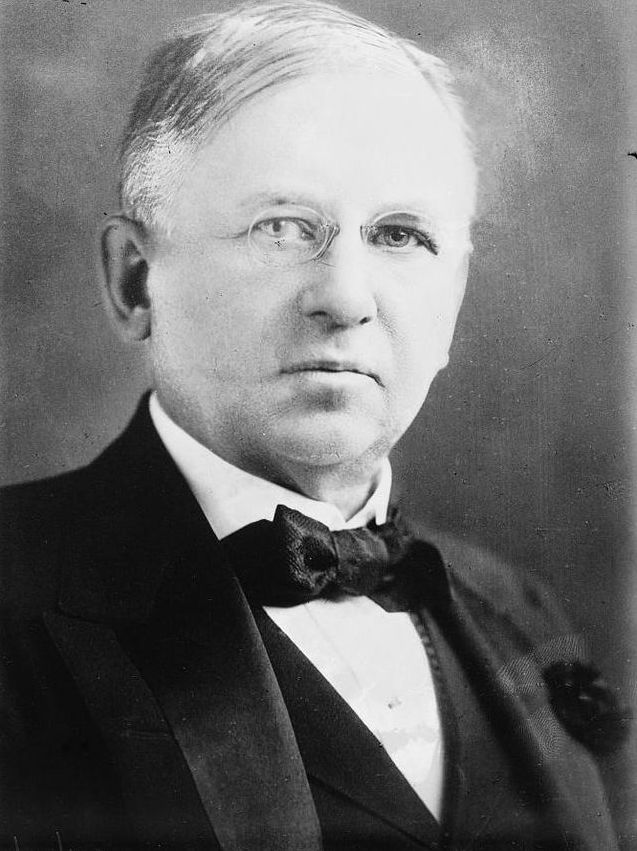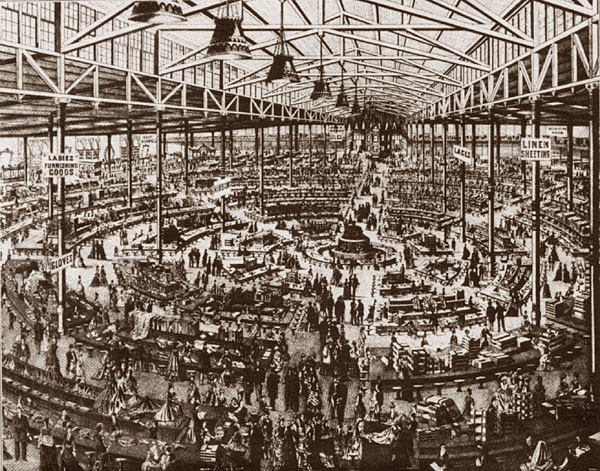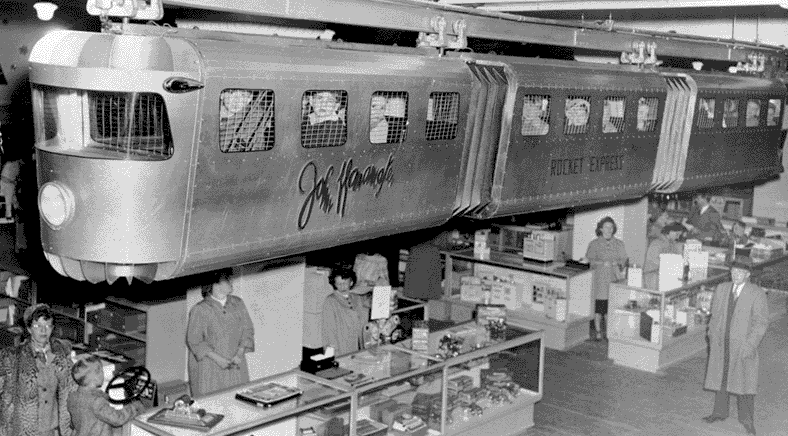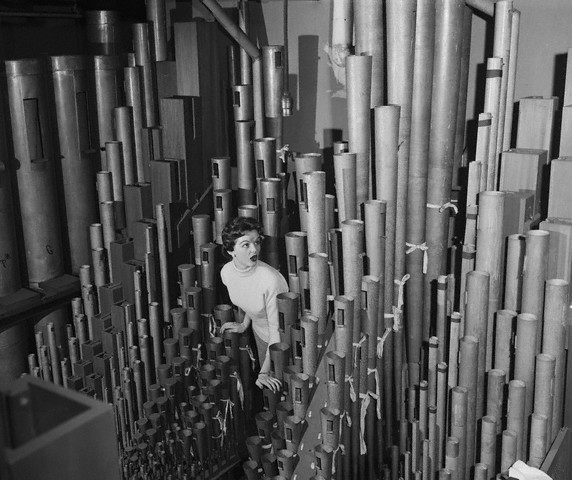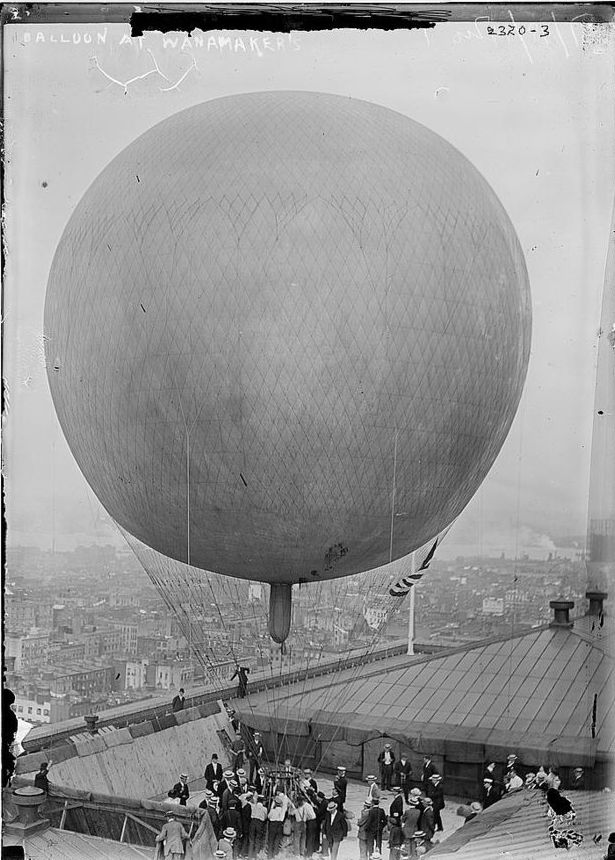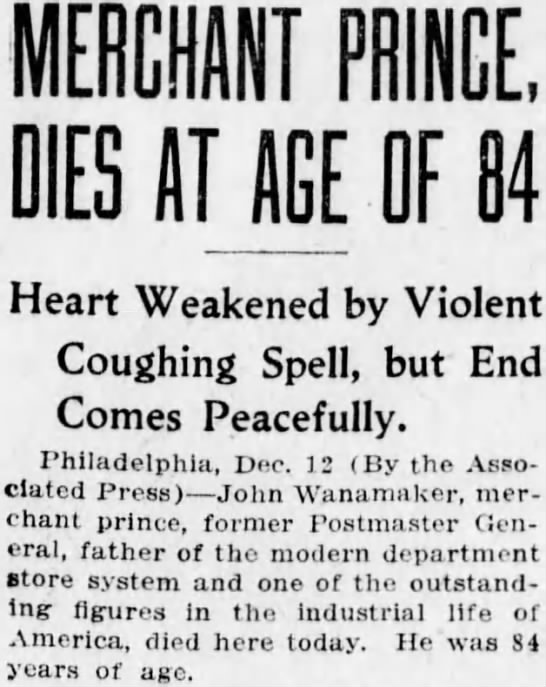For John Wanamaker, being America’s first great merchant wasn’t merely about ringing cash registers. It was also about innovation in a number of ways, many of which weren’t directly reflected in the bottom line.
The owner and operator of a pair of humongous department stores, one opened in 1876 in Philadelphia and the other 20 years later in Manhattan, Wanamaker believed that rather than than looking at your customer as a short-term mark, you should cultivate a long-standing relationship based on trust and satisfaction–not the conventional wisdom at the time–and introduced the price tag and allowed money-back guarantees. He was the first to wisely exploit the power of print advertising, but he sold you what he’d promised.
He also turned his emporiums into experiments in communications and technology, having telephones in his stores as early as 1879, allowing his roofs to be used as launching pads for balloonists in aviation’s pioneering days and installing into his sprawling shops wireless radio stations (customers listened to live reports of the sinking of the Titanic). Having the world’s largest playable pipe organ in his on-site theater and a working train car suspended from the ceiling to carry children around the toy department were nice flourishes as well. Wanamaker didn’t spoil his customers by starving his employees: He paid them holiday bonuses and gave them medical care and athletic facilities and other benefits. His passing was reported in an article in the December 12, 1922 Brooklyn Daily Eagle, an excerpt from which follows.
Tags: John Wanamaker

